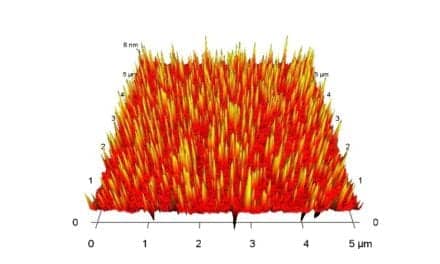Like many in the clinical laboratory community, CLP has been watching the gradual development of next-generation sequencing (NGS) technologies and their adoption for use in clinical laboratories. While the overwhelming majority of current NGS users and applications remain more attached to basic medical research than to the responsibilities of providing care for individual patients, a growing number of studies have demonstrated that NGS offers great potential for improving diagnostic accuracy and guiding the selection of patient therapies.
In the middle of March, the Centers for Medicare and Medicaid Services (CMS) took steps to support the emergence of NGS diagnostics by issuing a national coverage determination in favor of the technology for use in Medicare beneficiaries with advanced cancer.1 Specifically, CMS determined that the use of NGS as a diagnostic laboratory test is “reasonable and necessary, and covered nationally, when performed in a CLIA-certified laboratory, when ordered by a treating physician, and when all of the following requirements are met”:
Patient has:
- Either recurrent, relapsed, refractory, metastatic, or advanced stages III or IV cancer.
- Either not been previously tested using the same NGS test for the same primary diagnosis of cancer or repeat testing using the same NGS test only when a new primary cancer diagnosis is made by the treating physician.
- Decided to seek further cancer treatment (eg, therapeutic chemotherapy).
The diagnostic laboratory test using NGS must have:
- FDA approval or clearance as a companion in vitro diagnostic.
- An FDA approved or cleared indication for use in that patient’s cancer.
- Results provided to the treating physician for management of the patient using a report template to specify treatment options.
In this issue of CLP, a team from Qiagen assesses the performance of the company’s GeneReader NGS system in comparison with an alternative NGS technology, and demonstrates its effectiveness and reliability for the detection of genetic mutations in tumor biopsy samples. While such systems are already showing the way toward future adoption of NGS in routine clinical practice, it’s likely that CMS’s national coverage decision will be just as important for overcoming the hesitation that has so far slowed the adoption of NGS in clinical settings.
Reference
- Decision Memo for Next-Generation Sequencing (NGS) for Medicare Beneficiaries with Advanced Cancer [CAG-00450N; online]. Baltimore: Centers for Medicare and Medicaid Services, 2018. Available at: www.cms.gov/medicare-coverage-database/details/nca-decision-memo.aspx?NCAId=290&TimeFrame=7&DocType=All&bc=AAAAIAAAQAAA&. Accessed March 19, 2018.
Steve Halasey
Chief Editor, CLP
[email protected]
(626) 219-0199




